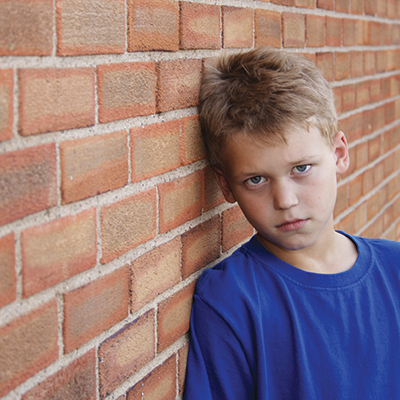
Zoe Taylor, assistant professor of human development and family studies, examines resiliency and children. We talked to her about ostracism and the best approaches for dealing with affected children.
Q: What are the possible consequences of ostracism?
A: Ostracism is a serious risk for children with long-lasting developmental consequences. Peer rejection, bullying and isolation have been linked to maladjustment in multiple developmental areas such as poor psychological health, lower academic success and engagement, poor social competence, and higher levels of externalizing problems. Ostracism may be particularly detrimental for children's competence as children who are ignored can feel non-existent, discounted and invisible. Also, children who are experiencing ostracism may be especially high-risk, as they lack one of the core strengths of resilience, that of positive social relations.
Q: What advice do you have for parents of children who are being ostracized?
A: Key findings across studies of resilience have clearly demonstrated that a primary component of resilient functioning is social relationships. For children experiencing high levels of adversity, peer relationships can be particularly protective. Some children may be rejected by their peers because they lack social confidence or are shy, whereas others may be ostracized because they are overly aggressive. The ways in which parents can aid their children depends on sensitivity to the situation. For timid children, parents could foster and encourage children's self-esteem and self-efficacy. Parents can also help children reframe negative thoughts and perceptions that may be preventing their child from having successful friendships.
Children who are aggressive or who have poor self-regulation are often rejected by their peers, with studies clearly showing that these dysfunctional social exchanges result in isolation and sadness, which further jeopardizes future social interactions. In this situation, modeling and helping children regulate their emotions if they are susceptible to aggressive or other socially inappropriate behaviors is critical. It's important to teach and help children recognize and talk about their own and others' emotions. All of these techniques are associated with higher peer competence, and in turn resilience, in children and adolescents.
Q: What are the best coping approaches for children who are being ostracized?
A: The best approach for a child who is being ostracized is for the child to find a source of support. Ideally this would be a parent. However, one potential confounding factor here is if the child's home environment is also a risk factor. Some ostracized children may be having difficulty with peer social relationships because their family relationships at home are also problematic. Children who are excluded because they are overly aggressive or disruptive may have home environments with a lot of conflict present, or they might have parents who model inappropriate ways of coping with stress and challenges. Many children in poorer quality home environments have better outcomes if they have a friend network to turn to for support.
It's vital for children to find a source of support or a place where they feel like they belong. This could be through a club at school or in the community, a teacher who can serve as a mentor, or a religious organization. Being able to ask others for help and not turning away from support helps children move out of stuck patterns and relationships. Social support, even from a single person, is incredibly effective against emotional problems such as depression, which is a common symptom of someone who is ostracized.
Unfortunately many of the personal characteristics that foster resilience and adaptation to adversity, such as sense of belonging, mastery, self-esteem, and perceiving life as meaningful, are also characteristics that are impeded by ostracism. If some of these traits can be maintained or fostered, particularly self-esteem and confidence, better developmental outcomes would be expected. Most important for children to remember is that resilience is not a unique or special characteristic, but something that every human has a capacity for utilizing and fostering in themselves.











